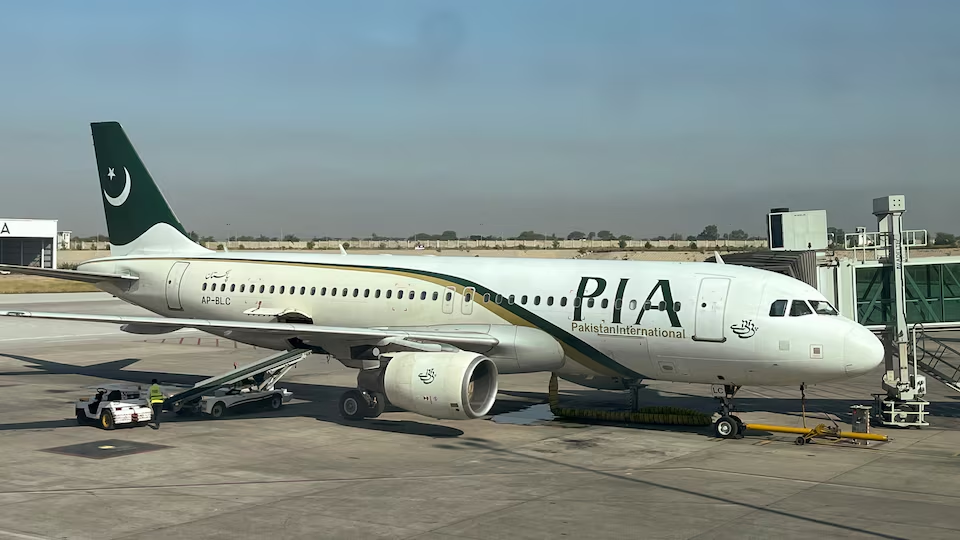KARACHI: As part of the reforms recommended by the IMF, Pakistan is placing on the block a share ranging from 51% to 100% of the loss-making national carrier Pakistan International Airlines, opens new tab, the privatization panel announced on Tuesday.

Although previous elected administrations have shied away from the flag carrier’s sale because it is expected to be extremely controversial, the privatization process will advance Pakistan’s efforts to seek additional finance negotiations with the IMF.
The panel hired EY Consulting as the deal’s financial consultant and set a deadline of May 3rd for declarations of interest in PIA, which has hundreds of billions of rupees in arrears. The panel also announced the appointment in a newspaper ad.
The Privatization Commission stated on its website that “the restructured PIA is being offered to potential investors in its new, ‘debt-lite’ structure for a 51%-plus stake.”
After completing every step of the transaction, the panel expected to finalize a share price agreement by June 24, it stated.
“The restructured PIA provides an opportunity to invest in a full-service airline.”
According to the panel, PIA currently holds the largest part of the aviation market in Pakistan at 23%. With continued growth, the airline is expected to surpass 30% in the past.
Due to a lack of direct flights to destinations, the airline—which has a fleet of 34 aircraft, including 17 Airbus A320s, 12 Boeing B777s, and 5 ATRs—loses business to Middle Eastern carriers, which hold a 60% market share.
The airline has agreements for air service with 87 nations and landing slots at major airports like London Heathrow.
Reorganizing
By reorganizing the company, a significant amount of legacy debt will be released from the operating subsidiary by separating aviation-related activities from non-core components.
Liabilities of 603 billion rupees ($2.2 billion) will be eliminated through restructuring, leaving 203 billion rupees ($730 million) on the purchased company’s balance sheet.
In 2023, PIA broke even at the earnings before interest, taxes, depreciation, amortisation, and restructuring or rent costs (EBITDAR) level. The panel estimated that this level of performance would persist through 2024.
In addition to the losses and debt, however, PIA’s governance and safety standards have been under scrutiny by international aviation regulators for some time.
Following a nearly hundred-person death in a PIA jet disaster in Karachi in 2020 and an incident involving a forged pilot’s license, the European Aviation Safety Agency (EASA) prohibited the airline from operating on its most profitable routes in Europe and Britain.
The government has informed parliament that the airline’s yearly revenue is lost due to the ongoing ban, which amounts to approximately 40 billion rupees.
The investment presentation stated, “PIA plans to restore its network, starting routes into the United Kingdom, Western Europe, and the United States.”
The IMF and privatization
Following Pakistan’s adherence to budgetary restraint plans with the International Monetary Fund (IMF), through which it obtained a $3 billion bailout in June, the equity offer, which carries management control, was made.
Pakistan is currently seeking to begin negotiations with the lender for a medium-term program essential to supporting an economy plagued by high rates of inflation, depleted foreign exchange reserves, and significant demands for outside funding.
State-Owned Enterprises (SOEs) should undergo changes that make ownership and government roles more explicit, according to the IMF.
After rising more than 403% over the previous six months, shares of the airline, opens new tab, fell 7.5% during intraday trading to reach the lower limit.










































